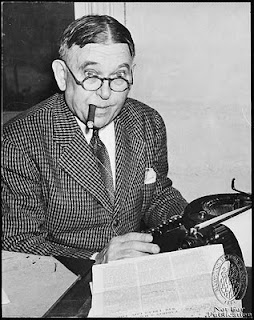The View from Afar
Writings by retired newspaper publisher Stephen Waters

The fabric of society: 10. Individuals validate governance
fas10of14 Rome (NY) Sentinel 2015-10-12 October 12, 2015
Individuals have little reason to trust governors who control schools. Across the better part of a millennium, the institutions of governance challenged to raise human society have instead sown the seeds of their own destruction:
Politicized religions in the 1500s, Absolutism in the 1600s, Abstract rationalism in the 1700s, Industrialized nation states in the 1800s, or Media-manipulated central control in the 1900s.
Each refinement of governance failed to clean up the mess left by the previous century, and left a different mess for succeeding centuries to deal with.
The 20th century was an incredible century advancing the sciences — chemistry, physics, biology, psychology, geology, and archeology, engineering, electronics, set and graph theory, gaming, and computation. But socially, we deal with each other much the same as we have for a hundred years: unable to identify how a different culture was destructive or explain why.
Ethics did not mature in the 20th century. Morality never grew beyond Machiavelli and politics became what you can get away with. The ‘-isms’ that come to mind — Libertarianism, Conservatism, Classical Liberalism, or any of the political parties — have not inoculated individuals to defend themselves. Nor have they countered the political class with an alternative that values the individual and explains the tie between individuals and society. Most unsettling of all, institutional subjects like history, philosophy, art, science, language — the subjects traditionally used to compose alternatives — have themselves become suspect.
You cannot value what you cannot see. If you can’t see why individuals need society, manufacturing society will remain unimportant. It’s not hard. It’s just not habit. A person keyed to search for a pattern in personal experience is more likely to recognize when that pattern shows a useful way to behave. A pattern gives you a tool, not a rule. It does not insist how you should behave. Practice to recognize patterns in personal experience is useful with governance, thought, language, ethics, and culture.
People trust their own judgment, when they know it has failed in the past and will likely fail again. Their thinking machinery jumps to conclusions it tries to justify by the flimsiest of means. If one can’t trust oneself, how can one trust others equally likely to jump to their own conclusions? Conversely, how can they trust you?
Our country is exceptional because it has confidence in its citizens. Confidence in “We, the people” was and remains the singular most important revelation about the founding of our country. As a corollary, education is not used to achieve power or to maintain it.
Until now. The most powerful advisers in government suggest that manipulation of citizens by government is okay. [1] It is an inversion of the relationship of citizens to their government from which the founders of the country sought to insulate us.
A proper goal for school is not to be “college and career ready”. It is not even to create government– approved “good citizens.” The goal is to develop maturity and independence that lead one to value and guard society.
The question “Is there room for the individual in society?” was put to bed a century ago, and certainly put away during Ronald Reagan’s confrontation with the Soviet Union. After years of dullness and lack of vigilance, the question returned. People become uncomfortable if the question is recast as “Is society a user of people?” or “Should individuals be suppressed for the advantage of society’s powerful?”
Individuals need to claim space in a dominating society. Technology has blinded you; you are connected but not social.
The Greeks valued liberty, and for that liberty were willing to sacrifice everything rather than give up. Too many today would casually trade in liberty for the empty promise of security and the certain slavery of a free lunch, never appreciating its true price.
Ours is a generation so free that it has lost the meaning of freedom, the reason for freedom, and the will to reach for it. As surely as people who have no liberty yearn for it, the people who have liberty handed to them lust for absence of risk.
[The next article examines how to take individual responsibility.]
--
[1] Cass Sunstein http://papers. ssrn.com/sol3/papers.cfm?abstract_ id=2565892

Stephen B. Waters
In early 2021, with 46 years in the business, I retired as publisher of the Rome (NY) Daily Sentinel
After five generations of family ownership, despite an unsettled economy, we keep on. We understand that although we may own the newspaper, we hold it in stewardship for the community.
Across my career, so many other small newspapers were purchased by media chains, large newspapers sold their integrity, and broadcast news outfits fell back on superficial entertainment.
They put journalism in this country at risk. The best antidote is for individual readers to arm themselves to recognize the danger to their community, culture, and society itself.
Index
-
 sbwTweet
sbwTweet
Mostly Links and Retweets -
 Essays
Essays
Writings across time -
 Editorials and columns
Editorials and columns
For the newspaper -
 Presentations
Presentations
Community discourse -
 Books
Books
Published and available -
 Audiobooks
Audiobooks
Readings and more